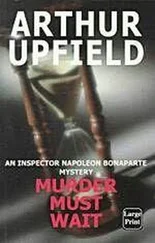Connie greeted them gravely and listened without question to Dan’s report of the conversation with Vince Servius. After Dan had finished, Connie nodded casually, as though it was of little importance, and said, “Miss Raymer, I’m not so good at this, so I thought maybe you could help. There’s the Garrity girl’s closet. Go through it and give me an estimate on the cost.”
Jane went to the open closet. She began to examine the clothes. “Hey!” she exclaimed.
“What do you think?” Connie asked.
“If this suit cost a nickel under two hundred, I’ll eat it. And look at this coat. Four hundred, anyway.” She bent over and picked up a shoe. “For ages I’ve dreamed of owning a pair of these. Thirty-seven fifty, at least.”
“Care to make an estimate on the total?” Connie asked her.
“Gosh, thousands. I don’t know. There are nine dresses in there that must have cost at least a hundred apiece. Do you have to have it accurate?”
“That’s close enough, thanks.” He took a small blue bankbook out of his pocket and flipped it to Dan. Dan caught it and looked inside. Loreen Garrity had more than $1100 on hand. There had been large deposits and large withdrawals—nothing small.
Connie said, “I’ve been to see her family. They’re good people. They didn’t want to talk mean about the dead, so it took a little time. But I found out our Loreen was one for the angles—a chiseler—no conscience and less morals. A rough, tough cookie to get tied up with.
“From there, I went to see the Kistners. Every time the old lady would try to answer a question. Kistner’d jump in with all four feet. I finally had to have Levandowski take him downtown just to get him out of the way. Then the old lady talked.
“She had a lot to say about how lousy business is. How they’re scrimping and scraping along, and how the girl couldn’t have a new formal for the Christmas dance tomorrow night at the high school gym.
“Then I called up an accountant friend after I left her. I asked him how Kistner had been doing. He cussed out Kistner and said he’d been doing fine; in fact, he had stolen some nice retail accounts out from under the other boys in the same racket. So I came over here and it looked like this was where the profit was going. So I waited for you so I could make sure.”
“What can you do about it?” Dan demanded, anger in his voice, anger at the big puffy man who hadn’t wanted to lie to the police.
“I’ve been thinking. It’s eleven o’clock. He’s been sitting down there sweating. I’ve got to get my Christmas shopping done tomorrow, and the only way I’ll ever get around to it is to break him fast.”
Jane had been listening, wide-eyed. “They always forget some little thing, don’t they?” she asked. “Or there is something they don’t know about. Like a clock that is five minutes slow, or something. I mean, in the stories...” Her voice trailed off uncertainly.
“Give her a badge, Connie.” Dan said with amusement.
Connie rubbed his chin. “I might do that, Dan. I just might do that. Miss Raymer, you got a strong stomach? If so, maybe you get to watch your idea in operation.”
It was nearly midnight, and Connie had left Dan and Jane alone in a small office at headquarters for nearly a half hour. He opened the door and stuck his head in. “Come on, people. Just don’t say a word.”
They went to the Interrogation Room. Kistner jumped up the moment they came in. Levandowski sat at the long table, looking bored.
Kistner said heatedly,” As you know, Lieutenant, I was perfectly willing to cooperate. But you are being high-handed. I demand to know why I was brought down here. I want to know why I can’t phone a lawyer. You are exceeding your authority, and I—”
“Siddown!” Connie roared with all the power of his lungs.
Kistner’s mouth worked silently. He sat down, shocked by the unexpected roar. A tired young man slouched in, sat at the table, flipped open a notebook, and placed three sharp pencils within easy reach.
Connie motioned Dan and Jane over toward chairs in a shadowed corner of the room. They sat side by side, and Jane held Dan’s wrist, her nails sharp against his skin.
“Kistner, tell us again about how you came back to the office,” Connie
said.
Kistner replied in a tone of excruciating patience, as though talking to children, “I parked my car in my parking space in the lot behind the building. I used the back way into the lobby. I went up—”
“You went to the cigar counter.”
“So I did! I had forgotten that. I went to the cigar counter. I bought three cigars and chatted with Barney. Then I took an elevator up.”
“And talked to the elevator boy.”
“I usually do. Is there a law?”
“No law. Kistner. Go on.”
“And then I opened the Men’s Room door with my key. and I was in there maybe three minutes. And then when I came out, the man I described brushed by me. I went to the office and found the window open. I was shutting it when I heard—”
“All this was at two o’clock, give or take a couple of minutes?”
“That’s right, Lieutenant.” Talking had restored Kistner’s self-assurance.
Connie nodded to Levandowski. The sergeant got up lazily, walked to the door, and opened it. A burly, diffident young man came in. He wore khaki pants and a leather jacket.
“Sit down.” Connie said casually. “What’s your name?”
“Paul Hilbert, officer.”
The tired young man was taking notes.
“What’s your occupation?”
“I’m a plumber, officer. Central Plumbing. Incorporated.”
“Did you get a call today from the Associated Bank Building?”
“Well. I didn’t get the call, but I was sent out on the job. I talked to the super, and he sent me up to the seventeenth floor. Sink drain clogged in the Men’s Room.”
“What time did you get there?”
“That’s on my report, officer. Quarter after one.”
“How long did it take you to finish the job?”
“About three o’clock.”
“Did you leave the Men’s Room at any time during that period?”
“No. I didn’t.”
“I suppose people tried to come in there?”
“Three or four. But I had all the water connections turned off, so I told them to go down to sixteen. The super had the door unlocked down there.”
“Did you get a look at everybody who came in?”
“Sure, officer.”
“You said three or four. Is one of them at this table?”
The shy young man looked around. He shook his head. “No, sir.”
“Thanks. Hilbert. Wait outside. We’ll want you to sign the statement when it’s typed up.”
Hilbert’s footsteps sounded loud as he walked to the door. Everyone was watching Kistner. His face was still, and he seemed to be looking into a remote and alien future, as cold as the back of the moon.
Kistner said in a husky, barely audible voice. “A bad break. A stupid thing. Ten seconds it would have taken me to look in there. I had to establish the time. I talked to Barney. And to the elevator boy. They’d know when she fell. But I had to be some place else. Not in the office.
“You don’t know how it was. She kept wanting more money. She wouldn’t have anything to do with me, except when there was money. And I didn’t have any more, finally.”
“I guess I was crazy. I started to milk the accounts. That wasn’t hard: the clients trust me. Take a little here and a little there. She found out. She wanted more and more. And that gave her a new angle. Give me more, or I’ll tell.”
“I thought it over. I kept thinking about her being a witness. All I had to do was make it look like she was killed to keep her from testifying. I don’t care what you do to me. Now it’s over, and I feel glad.”
Читать дальше












